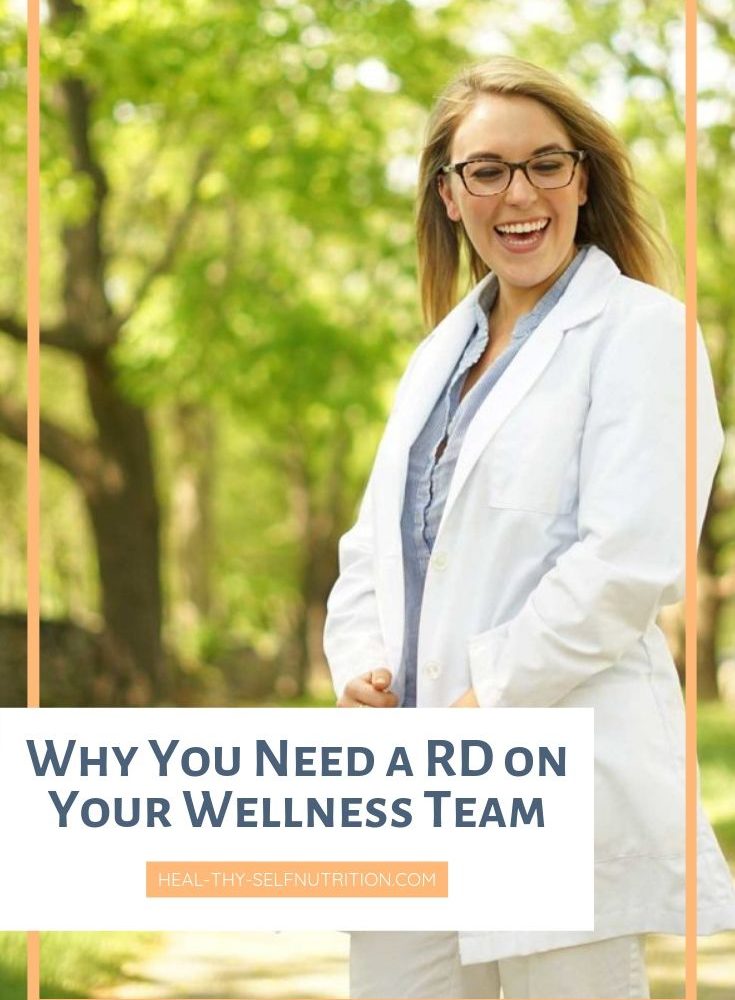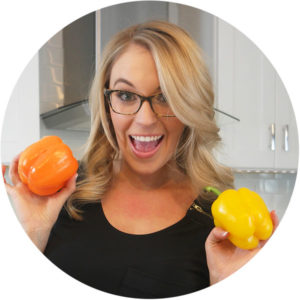Why You Need a RD on Your Wellness Team
by
Today, March 14, is recognized as National RD Day and it’s my first, official one to celebrate!
Let’s be honest about the real picture of what it looked like walking out of that exam…because it was not that! #Sweaty #Crying #NotBreathing
I remember last year on this day still having the thought that this time next year, I may not be celebrating this day as a RD.
I was mid-dietetic internship craziness with the looming board exam 3 months out. It was rumored very difficult to pass with a wait period to retake. The light at the end of the tunnel still was dim.
BUT we all know how that chapter ends and today, I am celebrating! My first RD day!
I find myself advocating for the position’s recognition both inside and outside of the hospital setting. You may be unaware as I was about the vigorous schooling, accreditation, and process of not only becoming a RD, but maintaining the licensure. Yet, they’re not one of the first people some think of when it comes to treating an individual. I am so grateful to be partnered with physicians and allied health professionals who also recognize RDs as a necessary part of one’s wellness team, who advocate for food as medicine, and the impact diet and lifestyle changes can have on one’s treatment plan.
Why should you consider a RD as part of your wellness circle?
According to the International Food Information Council, a Registered Dietitian Nutritionist (RD/RDN) is the most trusted source to provide information regarding what types of foods you should be eating.
RDs are the experts in both food and nutrition and have the ability to translate the science behind them into practical solutions for day-to-day habits and lifestyle. You’ll find them everywhere throughout the community in hospitals, schools, public health clinics, nursing homes, fitness centers, food management, food industry, universities, research and private practice. With the rise of social media, you’ll also be able to follow and find them on sites like Pinterest, Instagram, Facebook, and Twitter with tons of free, reliable information yours for the taking.
Here’s a combination of facts from EatRightPro.org, the official website of the Academy of Nutrition and Dietetics along with my (expert?) opinion as to why you need a RD on your team:
1. RDs have the highest level of nutritional counseling.
RDs have completed multiple layers of education and training established by the Accreditation Council for Education in Nutrition and Dietetics (ACEND). In addition to a Bachelor’s degree, RDs must be accepted into a competitive internship where they complete 1,200 hours of an extensive supervised practice at numerous locations. From there, they will go on to pass the rigorous national exam. Most RDs hold graduate degrees and continue to obtain certifications in specific areas, such as diabetes, sports, oncology, pediatric, and functional medicine. They also must sustain 75 hours of continuing education credits every 5 years, keeping them at the forefront of advances in science.
2. Medical Nutrition Therapy
RDs are the only nutrition professionals authorized to prescribe Medical Nutrition Therapy in the United States. Because of their thorough training and accreditation, RDs are qualified to work in every imaginable food environment: healthcare institutions, corporate health programs, foodservice operations, nutrition product promotion, university, and research settings.
3. Comprehensive, Customizable Approaches
RDs do not practice a one-size-fits-all approach to diet and nutrition therapy. They act as investigators of your health, peeling back the layers to not only lead you in the right direction, but understand why things in the past did not work. Follow up visits will focus on maintenance and monitoring of progress, adjusting where necessary.
4. Help Manage Chronic Disease
Confused about what to do following a diagnosis? What can you eat? What foods should you stay away from? Is anything off-limits? RDs are trained to interpret lab results to help you understand your condition and the nutrients of concern. From there, they will create an eating plan to help manage the condition.
5. Food Allergies, Sensitivities, and Intolerances
It can be overwhelming to understand what foods work best for you and which ones may not. A RD can guide and teach you how to read food labels so you’ll know which ingredients to avoid and help you find substitutions to keep your diet balanced and delicious.
6. Weight Loss Strategies that Work
Weight loss is not magic. It’s science. You may see a new diet pop up almost weekly if you turn on the tv or computer. RDs use scientific evidence to develop a plan unique to you that will work for your body, your needs and preferences- one that you can stick with for the long term.
The journey to become a RD has been a whirlwind, but the fun has just begun. Opening my private practice has allowed me to appreciate an individual’s story and be able to dive deep into a plan that works with and for their goals.
Today, I celebrate the ability to transform and touch lives by empowering a person to take the driver’s seat and regain control of their health to reach their best selves.
Let’s do this together.
xo Amanda

